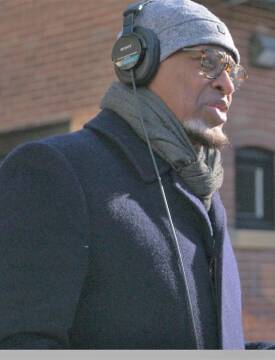
Phillip Martin
Senior Investigative Reporter
Phillip Martin, senior investigative reporter for the GBH News Center for Investigative Reporting, is a multi-award winning journalist. He was inducted into the Massachusetts Broadcast Hall of Fame in February 2024.
Phillip has been awarded numerous fellowships, grants and other tokens of recognition over his career for in-depth and thought-provoking reports — particularly when it comes to inequities and social justice at a hyperlocal and global scale. Awards include the 2023 Online Journalism Awards for social justice reporting on labor trafficking in Massachusetts, the 2022 National Edward R. Murrow Award for the multi-part GBH News series “Unseen,” and National Edward R. Murrow awards for investigative reporting in 2019 and 2014.
Martin was honored with national Sigma Delta Chi Awards for radio feature reporting in 2023 and investigative reporting in 2017.
He was a Shorenstein Fellow at Harvard University’s Kennedy School of Government in 2022, a Pulitzer Center grantee in 2018, an International Center for Journalist grantee in 2012, a Nieman Fellow at Harvard University in 1998, and a Japan-US Fellow in 1997.
Phillip was part of a team of reporters that was honored in 2002 with a George Foster Peabody Award to NPR for coverage of the Sept. 11 terrorist attacks, as well as numerous other journalism and civic engagement honors that include a Headliner, PMJA/PRNDI, AP, AAJA, Rueban Salazar, Gabriel, Prized Pieces, Harry Chapin and Clarion awards, as well as one of GBH’s highest honors, the Margret and Hans Rey Producer of the Year Award (2011-2012). He is also the recipient of nine NABJ Salute to Excellence awards and six regional Edward R. Murrow awards.
He has played major roles in two Netflix documentaries, Trial 4 and Manhunt: The Boston Marathon Bombing. He is also featured in a new documentary on AI gone wrong, Digital Tsunami.
Phillip earned a master's degree in law and diplomacy from the Fletcher School of Law and Diplomacy at Tufts University and studied international protection of human rights law at Harvard Law School, as well as journalism at the University of California at Berkeley in the Program for Minority Journalists.
He was NPR’s first national race-relations correspondent from 1998 to 2001. Phillip is an advisory board member for the Groundtruth Project and the Economic Hardship Project, as well as an SPJ New England board member.